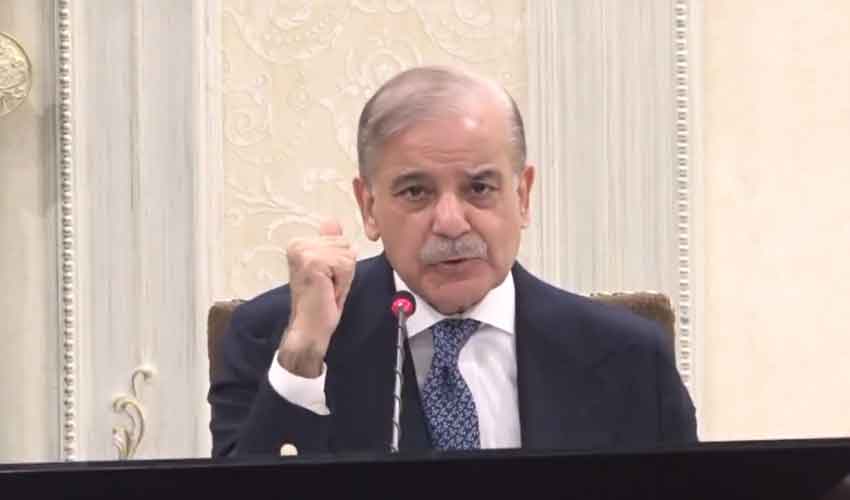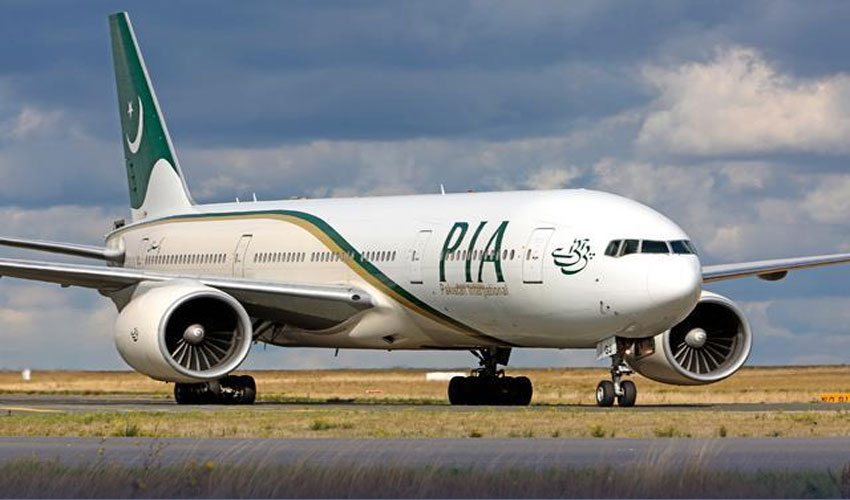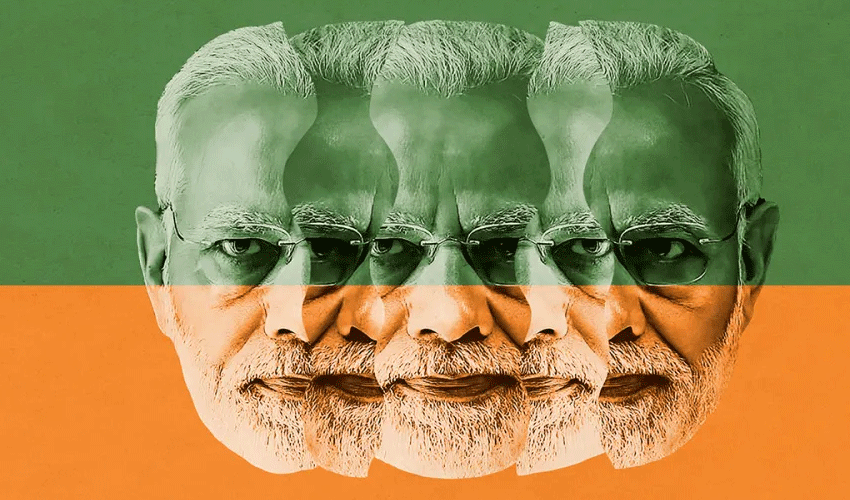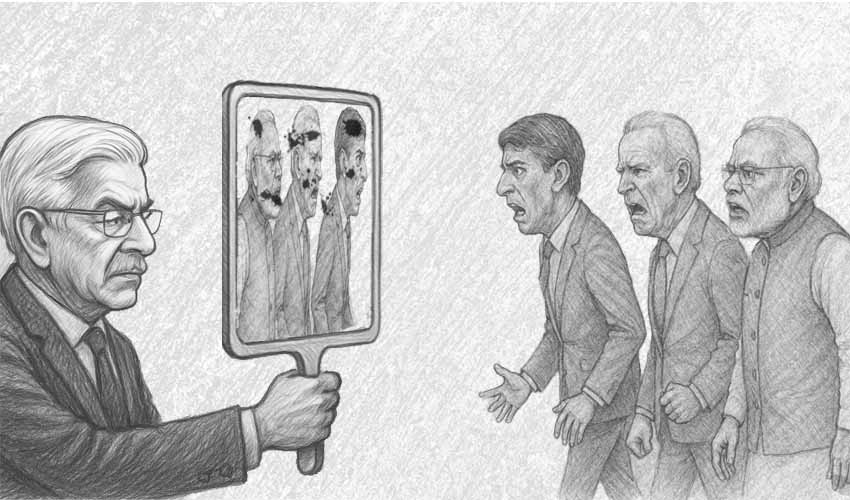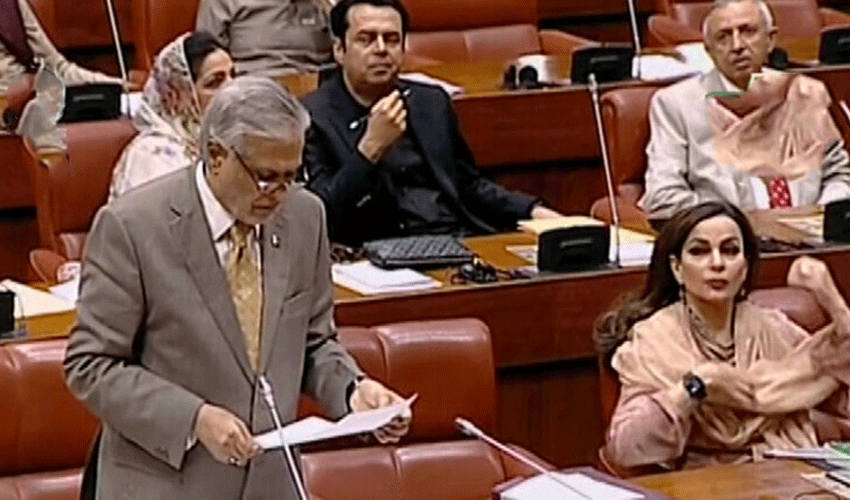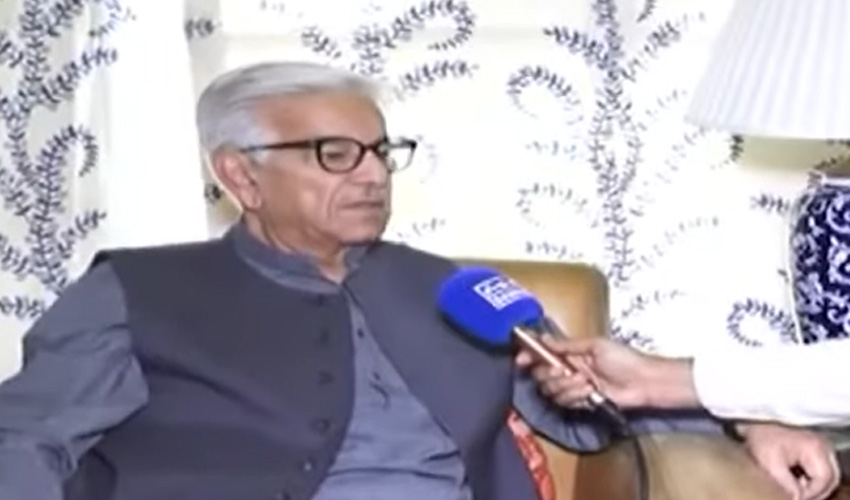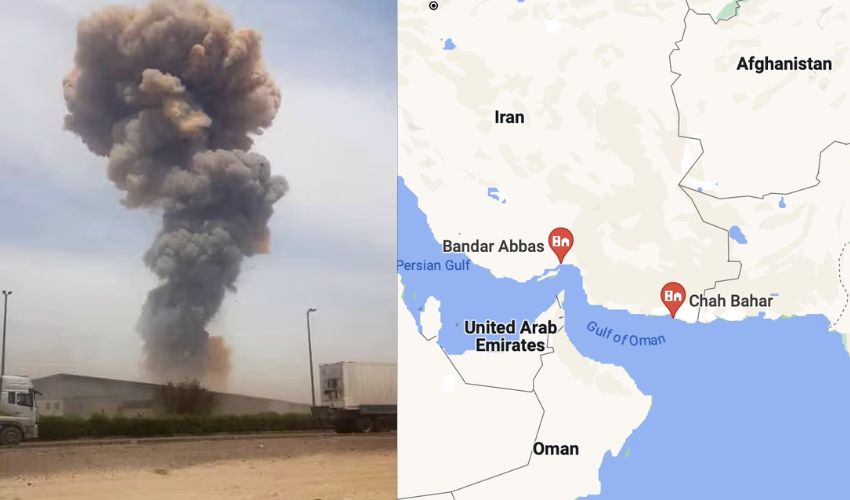Prime Minister Shehbaz Sharif has categorically rejected India’s baseless and unsubstantiated allegations following the Pahalgam incident, asserting that Pakistan, as a responsible state, is ready to cooperate in an impartial international investigation into the matter.
Addressing the passing-out ceremony of cadets at the Pakistan Military Academy (PMA) Kakul on Saturday, Prime Minister Sharif emphasised that water is Pakistan’s lifeline, and no compromises would be made on this crucial issue.
Pakistan to respond forcefully over water rights
“If our water is stopped in violation of the treaty, we will respond with full force. This is not negotiable,” he said.
He reassured the nation that Pakistan's armed forces are fully prepared to tackle any potential threats, and that the 250 million citizens of Pakistan stand united behind their military.
'Pakistan has been world’s largest victim of terrorism'
In his address, the prime minister underscored that Pakistan has been the world’s largest victim of terrorism, having lost around 90,000 citizens to terrorist attacks and incurred billions of dollars in economic losses.
He reiterated Pakistan’s unwavering stance against terrorism in all its forms and reaffirmed the country’s desire for peace. "Peace is our wish, but it should not be perceived as weakness," Sharif said.
Pakistan’s diplomatic and military readiness was also a focal point of the Prime Minister’s speech. He reiterated that Pakistan, as a non-permanent member of the United Nations Security Council, remains committed to international peace and security. Pakistan continues to fulfill its responsibilities under the UN Charter while striving to build peaceful relations with neighboring countries, especially Afghanistan. However, he stressed that cross-border terrorism originating from Afghan soil cannot be tolerated.
"Afghanistan is our neighbor and a brotherly Islamic country, and we desire peaceful coexistence," Sharif said. He also praised the efforts of Pakistan’s Defense Minister, Khawaja Asif, who recently visited Kabul to emphasize the need for cooperation and peace, despite the ongoing security challenges posed by militant groups operating from Afghan territory.
PM Shehbaz calls Kashmir 'jugular vein'
The Prime Minister also renewed Pakistan's long-standing position on Kashmir, calling it the "jugular vein" of the nation. He criticized the international community for its failure to resolve the Kashmir dispute and lamented the countless sacrifices made by Kashmiris in their struggle for freedom.
On the global stage, Sharif condemned the ongoing Israeli aggression in Gaza, calling for an immediate halt to the Israeli atrocities. He expressed Pakistan’s continued support for Palestine and its people’s demand for an independent homeland.
Earlier, in his address to the cadets, Sharif praised the disciplined and professional nature of Pakistan’s armed forces, describing them as one of the best in the world. "You are now the guardians of Quaid-e-Azam’s vision of faith, unity, and discipline," he told the passing-out cadets, adding that their service to the nation would serve as an example of patriotism and commitment.
The ceremony, attended by federal ministers, foreign diplomats, military officials, and other dignitaries, was marked by a sense of pride and unity. Chief of Army Staff General Syed Asim Munir, Defense Minister Khawaja Asif, and Information Minister Atta Tarar were present at the event.
The Prime Minister also touched on Pakistan’s economic recovery, noting that despite the numerous challenges, the country is now on the path to progress. He highlighted the influx of foreign investment in sectors such as mining, defense production, and infrastructure, which is driving the country forward.
In related developments, Defense Minister Khawaja Asif, in an interview with The New York Times earlier this week, reiterated Pakistan's readiness to cooperate with any international investigation into the Pahalgam incident. Asif rejected India's allegations, labeling them as politically motivated, and stated that Pakistan does not want the situation to escalate into a broader conflict, which could have devastating consequences for the region.
He also dismissed claims of the banned militant group Lashkar-e-Taiba operating from Pakistan, stating that the group was "inactive" and did not have the capacity to plan or execute attacks from within the country.





